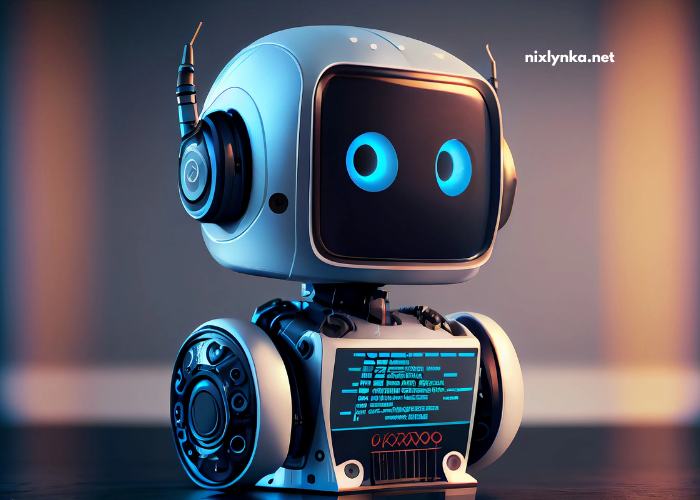The world of technology is evolving at an unprecedented pace, with innovations transforming industries and shaping the future. As we approach the next decade, cutting-edge technologies are poised to revolutionize various sectors, from healthcare to manufacturing and beyond. This article explores some of the most promising technologies that are set to define the next ten years, offering insights into their potential impact on the global economy and daily life.
The Rise of Artificial Intelligence and Machine Learning
AI’s Transformational Potential
Artificial Intelligence (AI) and Machine Learning (ML) have already begun to reshape industries, and their influence will only grow in the coming years. These technologies allow machines to learn from data, make predictions, and perform tasks that typically require human intelligence. As AI and ML continue to evolve, their applications will expand, improving everything from customer service to healthcare diagnostics.
AI’s integration into automation will result in smarter decision-making processes, reducing human error and increasing efficiency. Machine learning algorithms are already used in predictive analytics, enabling businesses to forecast trends and consumer behavior with remarkable accuracy. The next decade will see AI embedded in even more aspects of daily life, from personalized shopping experiences to self-driving cars and virtual assistants that understand complex human emotions.
AI in Healthcare: Revolutionizing Diagnosis and Treatment
One of the most exciting developments in AI is its application in healthcare. Machine learning models are helping doctors diagnose diseases with greater accuracy and speed than traditional methods. AI-driven tools are also playing a critical role in drug discovery, speeding up the development of new medications by analyzing vast amounts of data to identify promising compounds.
The use of AI in healthcare extends beyond diagnostics and treatment. Predictive analytics powered by machine learning can identify individuals at risk of certain conditions before symptoms appear, enabling preventive measures to be taken. With the advancement of AI, personalized medicine tailored to an individual’s genetic makeup will become more common, offering more effective and precise treatments.
The Future of 5G and Beyond
5G Networks: Enabling Faster, Smarter Connections
The rollout of 5G networks is one of the most anticipated technological advancements of the next decade. 5G promises lightning-fast internet speeds, reduced latency, and the ability to connect an exponentially larger number of devices simultaneously. This leap in connectivity will enable the growth of the Internet of Things (IoT), smart cities, autonomous vehicles, and immersive experiences like augmented and virtual reality (AR/VR).
The increased bandwidth and speed of 5G networks will allow for more robust applications, from high-definition video streaming and real-time gaming to the remote control of industrial machinery and drones. In healthcare, 5G can enable telemedicine and remote surgery by providing doctors with high-quality video feeds and real-time data from patients’ wearables.
6G and Beyond: The Next Frontier
While 5G will change the way we live and work, research into 6G networks is already underway. 6G is expected to provide even faster speeds, ultra-low latency, and greater energy efficiency. This next-generation technology will support new use cases, including ultra-immersive holographic experiences, quantum communications, and AI-driven smart systems that interact seamlessly with the environment.
6G could usher in a world where physical and digital realities merge effortlessly, facilitating experiences like virtual travel, real-time language translation, and instant access to vast amounts of information. While still in the early stages of development, 6G is likely to become a reality by the 2030s, further transforming how we interact with technology.
The Advancements in Quantum Computing
Unlocking New Possibilities with Quantum Technology
Quantum computing is another game-changing technology that is expected to make significant strides in the next decade. Unlike classical computers, which process data in binary (0s and 1s), quantum computers leverage the principles of quantum mechanics to perform calculations at an exponentially faster rate. These machines use quantum bits, or qubits, which can represent multiple states simultaneously, allowing for vastly more powerful computations.
Quantum computing has the potential to revolutionize fields such as cryptography, drug discovery, and materials science. In cryptography, quantum computers could crack encryption methods that are currently considered unbreakable, prompting the development of new encryption technologies that are resistant to quantum attacks. In healthcare, quantum computing could dramatically accelerate drug discovery by simulating molecular structures at a level of complexity that is impossible with today’s classical computers.
The Role of Quantum Computing in AI and ML
Quantum computing also has a deep connection with AI and ML. The ability of quantum computers to handle vast datasets and perform complex calculations at unprecedented speeds will greatly enhance machine learning algorithms. This synergy between quantum computing and AI has the potential to unlock breakthroughs in areas like personalized medicine, climate modeling, and financial forecasting.
As quantum computing technology matures, it will create new opportunities for AI to solve problems that were previously thought insurmountable, driving the next wave of innovation in various industries.
The Evolution of Augmented and Virtual Reality
Immersive Experiences in Entertainment and Education
Augmented Reality (AR) and Virtual Reality (VR) are no longer the stuff of science fiction. In the next decade, these technologies will become even more sophisticated, with applications that extend beyond gaming and entertainment. AR overlays digital information on the real world, while VR immerses users in entirely virtual environments. Together, they have the potential to transform industries such as healthcare, education, and retail.
In education, AR and VR can create interactive learning experiences, allowing students to explore historical events, conduct virtual science experiments, and even travel to distant planets—all from the comfort of their classroom. For healthcare, these technologies provide opportunities for medical professionals to practice surgeries in a risk-free environment or for patients to receive immersive therapy for conditions like PTSD.
AR and VR in Retail and Consumer Experiences
Retailers are also leveraging AR and VR to enhance the shopping experience. Virtual try-ons, where customers can “try” clothes or makeup via an app or in-store mirror, are already popular among brands. In the next decade, we can expect even more sophisticated virtual shopping experiences, with personalized recommendations and the ability to browse virtual stores in fully immersive 3D environments.
The Internet of Things (IoT): A Connected Future
The Expansion of IoT in Everyday Life
The Internet of Things (IoT) is set to revolutionize how we live and work by connecting everyday objects to the internet, allowing them to send and receive data. From smart thermostats that adjust the temperature based on your preferences to wearable devices that monitor your health in real time, IoT has already begun to enhance convenience and efficiency in our lives.
Over the next decade, IoT will become more integrated into urban infrastructure, creating smart cities where traffic, energy usage, and public services are optimized in real time. IoT-enabled devices will also play a significant role in industries like agriculture, where sensors will monitor soil conditions, weather patterns, and crop health to increase yields and reduce waste.
The Role of IoT in Industry 4.0
IoT will be a key enabler of Industry 4.0, the next phase of manufacturing. Smart factories will be equipped with connected machines and sensors that communicate with each other to optimize production processes. Predictive maintenance, where equipment is monitored in real time to predict failures before they occur, will become more common, reducing downtime and improving productivity.
Biotechnology and Genetic Engineering
CRISPR and the Future of Gene Editing
Biotechnology is another field that is poised for rapid growth in the next decade, with innovations in gene editing technologies like CRISPR leading the way. CRISPR allows scientists to edit DNA with unprecedented precision, offering the potential to cure genetic disorders, improve crops, and even create new forms of life.
In healthcare, CRISPR could pave the way for therapies that treat previously untreatable conditions, such as certain types of cancer, genetic diseases like sickle cell anemia, and HIV. The ability to modify genes could also lead to breakthroughs in anti-aging treatments and the development of more resilient crops that can withstand environmental stresses.
Synthetic Biology: The Future of Bioengineering
Synthetic biology is an emerging field that combines biology with engineering principles to create new, artificial biological systems. This technology could lead to the development of biofuels, biodegradable plastics, and even lab-grown organs for transplantation. In the next decade, synthetic biology has the potential to address some of the world’s most pressing challenges, from climate change to food security and healthcare.
The Impact of Autonomous Vehicles
Self-Driving Cars: A Revolution in Transportation
Self-driving cars are no longer a futuristic concept—they are already being tested on roads around the world. Over the next decade, autonomous vehicles (AVs) will become increasingly common, with significant implications for transportation, safety, and urban planning.
AVs have the potential to reduce traffic accidents caused by human error, decrease congestion, and offer greater mobility for the elderly and disabled. Additionally, the widespread adoption of autonomous vehicles will create new business opportunities in industries like ride-hailing, logistics, and public transportation.
Conclusion
The next decade promises to bring about transformative changes across every facet of society, driven by cutting-edge technologies like AI, 5G, quantum computing, and biotechnology. These innovations will not only change how we work and interact but also provide solutions to some of the world’s most pressing challenges, such as climate change, healthcare, and food security.
As these technologies continue to evolve, it is essential for individuals, businesses, and governments to stay informed and adapt to the new opportunities and challenges that will arise. The future is fast approaching, and the next decade will undoubtedly be an exciting time to witness the profound impact of these groundbreaking technologies.





